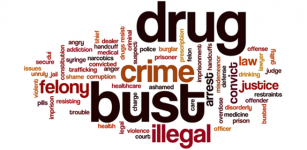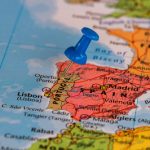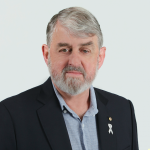Statistics on NSW Drugs Busts Exaggerated

The Bureau of Crime Statistics and Research (BOCSAR) has announced it has mistakenly double-counted a large number of drug busts over the past seven years – an admission which many believe further bolsters the argument that the war on drugs is futile.
BOCSAR director Dr Don Weatherburn admitted fault for the exaggerated data, which experts point out has been used to justify tougher, less effective drug law policy.
“When we saw they [the NSW Police] were doing searches and they were proving positive we just assumed they hadn’t recorded that positive result, so we added it in ourselves.
That was a mistake because they were adding it in,” Dr Weatherburn conceded.
Extent of error
The effect is that drug detections have been greatly exaggerated across the state.
BOCSAR has provided the following graph to depict the extent of the error.
Effect on policy
Western Sydney University Associate Professor of Criminology Dr Michael Salter explains that policy-makers rely heavily on BOCSAR figures to gauge a extent of drug crime, drug detections and overall trends in use.
Significantly, the impression of high numbers of detections has been instrumental in the allocation of extra funding for enforcement.
“What role have these inflated statistics had on informing drug policing and law enforcement?” Dr Salter remarked.
“[This] dramatic overestimation of drug detection may have led to a perception of a drug crisis. We have seen quite aggressive use of drug detection dogs, and policing at music festivals but to what extent have those tactics been launched to false data?”
Australian drug law reform foundation president Dr Alex Wodak adds that police and the NSW government have used the data to justify crackdowns on drug users, and the state’s continuing zero tolerance approach.
He believes the refusal to allow pill testing is based upon “spurious nonsense”, as well as inflated detection figures. “Where else do we say that ignorance of what you are taking is a safety measure?” he stated.
Criticism of police
NSW Greens MLC David Shoebridge says it’s “remarkable” that police did not pick-up on the inflated figures.
“Year on year police have demanded additional resources to meet perceived crime levels with much of this perception based on data produced by BOCSAR,” Mr Shoebridge stated.
“The war on drugs has never been winnable, and what we see from these recent numbers is that the NSW Police is having an even smaller impact on drug supply than many thought.”
Drug use is a health issue, not a criminal law matter
The authors of an article published in the Medical Journal of Australia have joined the chorus of health experts calling for an emphasis on harm reduction measures and government regulation when it comes to drugs that are currently illegal, rather than trying to arrest and imprison society’s way out of the problem.
The peer-reviewed article, titled ‘Beyond ice: rethinking Australia’s approach to illicit drugs’, argues that drug use should be classified as a health issue, rather than one which requires billions of dollars to detect and enforce.
The article calls upon governments to regulate drugs, citing Australia’s success in reducing tobacco consumption through regulatory measures.
Such an approach, it explains, would greatly reduce the harms associated with drugs use and save the community huge amounts of money.






